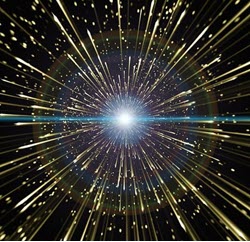It All Started with a Big Bang
The history of the universe and Earth is a fascinating journey that began with the colossal event known as the Big Bang. This singular moment, about 13.8 billion years ago, set into motion the chain of events that would lead to the formation of galaxies, stars, planets, and ultimately life as we know it. The repercussions of the Big Bang were immense, and its impact reverberates through the cosmos even today.
Following the Big Bang, the universe was a hot, dense soup of particles. Over time, as the universe expanded and cooled, these particles began to coalesce into the first atoms. The force of gravity played a crucial role in this process, pulling matter together to form the building blocks of galaxies and stars. It was within these cosmic structures that the elements necessary for life, such as carbon, oxygen, and nitrogen, were forged in the fiery cores of stars through the process of nuclear fusion.
On our own planet, Earth, the story of creation is equally awe-inspiring. About 4.5 billion years ago, a cloud of dust and gas left over from the formation of the Sun coalesced to form our planet. In the early days of Earth, the surface was a seething cauldron of molten rock, bombarded by asteroids and comets. Over time, the surface cooled, and water vapor in the atmosphere condensed to form our oceans.
The development of life on Earth is a testament to the resilience and adaptability of living organisms. The first forms of life emerged around 3.8 billion years ago in the form of simple single-celled organisms. These early life forms faced harsh conditions, from extreme temperatures to high levels of radiation. Yet, through the process of evolution, life continued to diversify and spread across the planet.
The evolution of life on Earth has been marked by key milestones, from the appearance of multicellular organisms to the colonization of land by plants and animals. One of the most important events in Earth’s history was the Cambrian Explosion around 541 million years ago, when a burst of evolutionary innovation led to the rapid diversification of life forms.
As life continued to evolve, complex ecosystems developed, with species interacting and coexisting in intricate webs of relationships. The history of life on Earth has been shaped by a series of mass extinctions, from the Permian-Triassic extinction event that wiped out nearly 96% of marine species to the asteroid impact that ended the reign of the dinosaurs.
Today, life on Earth is more diverse and interconnected than ever before. From the smallest microorganisms to the largest mammals, each species plays a vital role in maintaining the delicate balance of our planet’s ecosystems. As we look to the future, it is essential that we continue to study and understand the history of our universe and Earth, so that we can preserve and protect the wonders of life for generations to come.




























